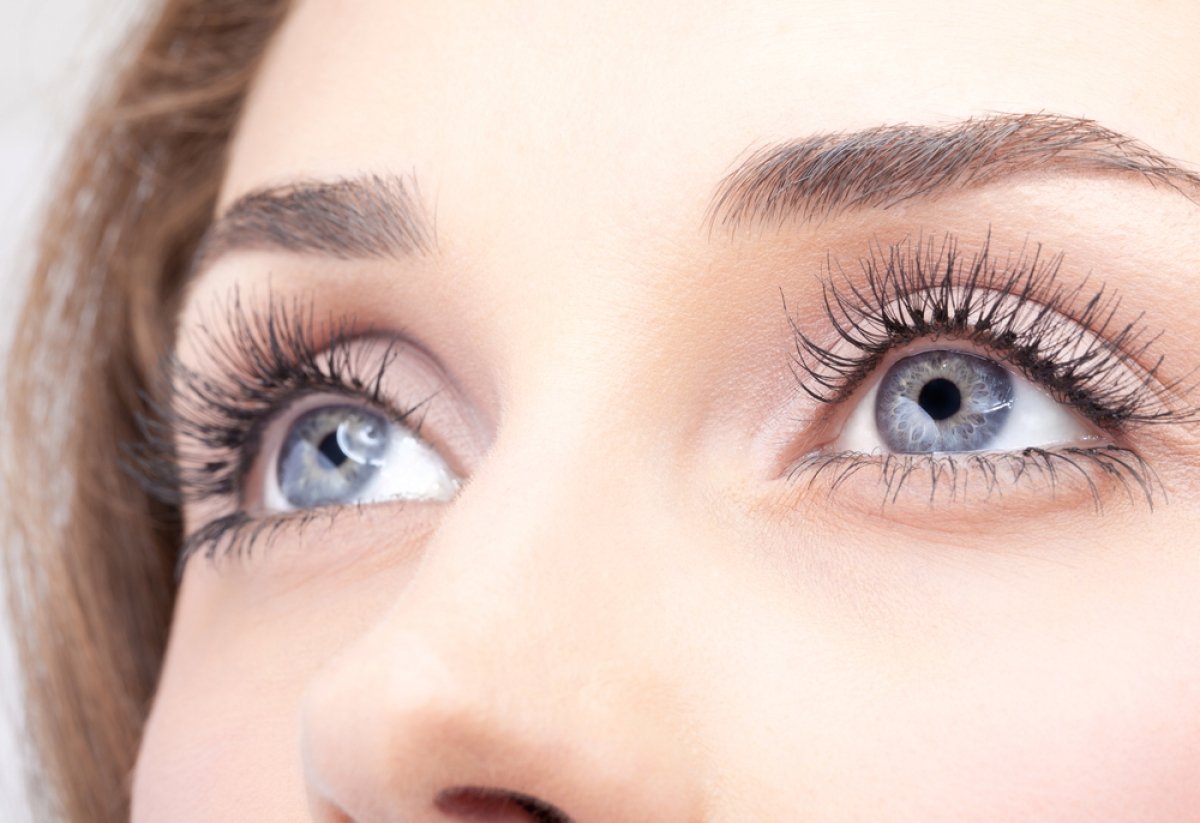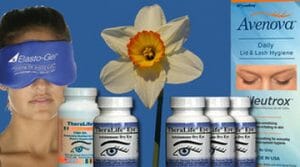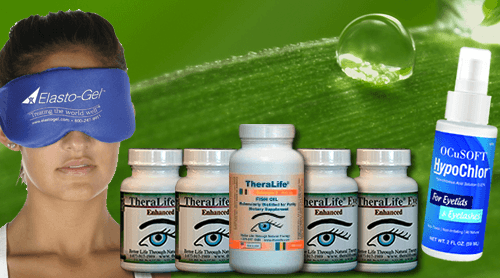@ Meta Description: Heal your Uveitis naturally! Read this personal story of how one person cured their Uveitis with holistic methods.
Uveitis Healing Naturally: My Personal Story Of Curing Uveitis With Holistic Methods
Uveitis is an inflammation of the uvea, which consists of the iris, ciliary body and choroid layer located in the eye. It’s a condition that can cause pain, blurred vision, floaters and redness. Left untreated, it can lead to vision loss and permanent damage.
While medical treatments exist for uveitis, many individuals have found holistic methods such as herbal remedies and dietary changes to be successful in helping manage their symptoms.
This article will explore one individual’s journey with healing from uveitis through natural means and provide insight into how others may approach this method of treatment.
Understanding Uveitis
Uveitis is a chronic eye condition that can cause significant vision impairments. Despite its prevalence in the population, few people understand the causes or treatments for this affliction.
Exploring holistic and alternative healing methods can offer sufferers hope of improving their eyesight without relying on traditional medications with potential side effects. Acupuncture, energy healing, and herbal remedies are some of the options available to those seeking relief from uveitis symptoms.
The ancient Chinese practice of acupuncture has been used as an effective treatment for many medical issues including uveitis. By focusing on specific points in the body, practitioners believe they can restore balance and encourage natural healing by stimulating energy flow within the patient’s system.
A study conducted by researchers at the University of Pennsylvania found that 77% of participants with anterior non-infectious intermediate or posterior uveitis reported improvement after receiving weekly acupuncture sessions over six months.
Studies have also shown that certain forms of energy healing may be beneficial for reducing inflammation caused by uveitis and other autoimmune diseases such as rheumatoid arthritis and Crohn’s disease. Practices like reiki involve directing positive life force energies into the affected area to promote deep relaxation and wellness while restoring balance throughout the body.
Additionally, exploring herbal remedies has become increasingly popular among people looking to manage their health naturally; however, it’s important to consult with a qualified healthcare practitioner before beginning any supplement regimen due to potential interactions with existing medications or medical conditions.
With so many options available, individuals suffering from uveitis have more choices than ever when it comes to managing their condition holistically.
Exploring Herbal Remedies – Uveitis
Uveitis is an inflammatory condition that affects the eyes and often requires medical intervention. However, there are other methods of healing such as exploring acupuncture, investigating essential oils, and examining dietary changes which can help reduce symptoms while avoiding further damage to the eye.
Acupuncture is a form of Chinese medicine based on the belief that energy flows through meridians in the body. Inserting needles into specific points along these pathways helps to restore balance in the body’s qi or vital life force. Acupuncture has been used for centuries to treat chronic pain and inflammation including uveitis. Scientific research has also shown that acupuncture stimulates endorphin release with anti-inflammatory properties which could be beneficial for reducing uveitis flares.
Essential oils like lavender, chamomile, helichrysum and myrrh have been studied for their potential anti-inflammatory effects on uveitic conditions due to their high concentrations of terpenes and phenolic compounds known to provide antioxidant protection against tissue damage. Additionally, using aromatherapy with these essential oils may aid relaxation which can help reduce stress levels associated with ocular inflammation flare-ups.
These holistic approaches offer an alternative means of managing uveitis without relying solely upon medications and surgery which may carry greater risks or unwanted side effects over time. By taking a more comprehensive approach to health care utilizing both traditional western treatments as well as natural remedies, it is possible to find relief from this debilitating condition while promoting long term wellbeing.
As such, it is important to explore all available options when looking for ways to improve vision health holistically. Moving forward we will examine dietary changes that may benefit those suffering from uveitis.
Best herbal remedy for Uveitis – TheraLife
Examining Dietary Changes- Uveitis
While my case of uveitis was unique to me, many people experience similar symptoms.
A holistic approach to treating this condition focuses on eliminating toxins and increasing hydration in the body.
For example, one patient with a mild form of uveitis experienced significant improvement after changing her diet and lifestyle habits.
She made dietary changes such as incorporating more fresh vegetables into her meals and reducing processed foods that were high in sugar and saturated fats.
In addition to making dietary alterations, she also increased her water intake by 1-2 liters per day.
This helped flush out toxins from her system while providing essential minerals and vitamins needed for optimal health.
Furthermore, drinking enough water during the day can help reduce eye strain which is often associated with uveitis flare ups.
To ensure proper hydration levels throughout the day, it is important to drink small amounts consistently rather than large amounts sporadically.
Finally, good quality sleep is another factor that can influence overall health including eye health.
Sleep helps restore energy levels and boosts immune function which are both necessary for managing inflammation caused by uveitis.
Therefore, ensuring adequate rest each night is key for successful recovery from this condition or any other illness for that matter.
By taking steps to eliminate toxins, increase hydration and get sufficient restful sleep, individuals may find improved results when trying to manage their uveitis naturally.
Utilizing supplements as part of an integrative plan could possibly offer further support in achieving desired outcomes.
Utilizing Supplements- Uveitis
As dietary changes are a cornerstone of holistic healing, supplements can be used to further optimize health. In this section, we will discuss how utilizing natural remedies and homeopathic remedies can help enhance overall wellness.
Natural remedies have been around since ancient times, though the modern version has become more popular in recent years as people search for ways to find balance without relying on synthetic drugs. Natural remedies come from plants and other sources found in nature that provide beneficial compounds like vitamins and minerals that support optimal functioning of the body. Common examples include herbs such as turmeric, ginger, ashwagandha, echinacea, garlic, lavender, chamomile tea, aloe vera juice and essential oils like peppermint or rosemary oil.
Homeopathy is an alternative form of medicine based on the principle of “like cures like” – meaning symptoms can be alleviated by ingesting substances similar to what causes them in the first place. Homeopathy utilizes dilutions of plant-based ingredients along with other minerals and elements to create individualized treatments depending on a person’s condition or ailment. Examples of commonly used homeopathy remedies range from Arnica Montana for muscle pain relief to Calcarea Carbonica for improving digestion issues.
Below is a list of benefits associated with using natural remedies and homeopathic treatments:
– Supports healthy immune function
– Aids in reducing inflammation
– Enhances cognitive functioning
– Promotes relaxation and stress reduction
These treatments offer an array of options when seeking additional forms of healing beyond traditional methods. By incorporating natural remedies into one’s daily routine alongside dietary modifications and lifestyle adjustments it is possible to achieve greater levels of health optimization than ever before imagined. With these tools at hand it may be time to explore alternatives which could lead us closer towards our desired outcomes.
Seeking Alternative Treatments-Uveitis
1. Natural therapies provide a viable alternative to traditional forms of treatment, and research is needed to determine which are most beneficial.
2. Integrative practitioners are a valuable resource for exploring the potential benefits of natural therapies and developing an individualized treatment plan.
3. Nutrition plays an important role in holistic health, and an exploration of dietary changes can be a useful tool for improving overall wellbeing.
4. Many natural therapies have the potential to interact with conventional treatments, so it is important to discuss any changes to a treatment plan with a healthcare provider.
5. There are numerous reliable sources of information available to help individuals research natural therapies, including professional organizations and scientific journals.
6. A holistic approach to health can be incredibly beneficial, and it is important to be mindful of the importance of self-care and the power of the mind-body connection.
### Researching Natural Therapies
In seeking alternative treatments to cure uveitis, researching natural therapies is a key step.
Exploring aromatherapy and embracing meditation are two popular methods among those who seek holistic health solutions to their ailments.
Aromatherapy can be used in many forms such as applying essential oils topically or inhaling through diffusers for emotional and physical benefits.
Meditation has been proven to reduce stress levels by calming the nervous system which allows for more restful sleep and improved mental clarity.
Furthermore, it helps focus on the present moment allowing us to accept our feelings without judgment, leading to an overall sense of wellbeing.
By incorporating these practices into one’s routine, there may be potential improvement in symptoms associated with uveitis.
Ultimately, further research should be conducted to determine efficacy as well as safety of each method when applied over long periods of time.
Finding Integrative Practitioners- Uveitis
When seeking alternative treatments for uveitis, researching and finding integrative practitioners that specialize in complementary therapies is an important step.
An integrative practitioner is a health care professional with knowledge of both conventional medicine as well as holistic approaches to healing such as herbalism, homeopathy, nutrition and more.
By working together with the patient, they can create customized plans that address physical, emotional and spiritual aspects of health.
It may be beneficial to seek referrals from friends or family members who have seen similar practitioners in the past or look online for qualified professionals in the area.
Furthermore, it is important to research each practitioner thoroughly before committing to any type of treatment plan – verifying their license, credentials and areas of expertise will ensure one gets quality services tailored specifically to their needs.
Exploring Diet Changes- Uveitis
In addition to exploring integrative practitioners, making dietary changes and lifestyle adjustments can be beneficial for those seeking alternative treatments for uveitis.
Diet may play an important role in managing the symptoms of this condition, as certain foods have been linked to inflammation or immune system imbalances which could exacerbate existing issues.
Eating a variety of whole grains, vegetables, fruits and lean proteins can help support overall health and nourish the body with essential nutrients.
Additionally, incorporating anti-inflammatory spices such as turmeric into one’s diet has proven to be effective in reducing inflammation and boosting immunity.
It is also helpful to practice stress-reduction techniques such as meditation practices that promote relaxation and inner peace.
Research shows that chronic stress can lead to increased levels of cortisol which further contributes to inflammation within the body.
By engaging in calming activities such as yoga or tai chi, or simply taking time out each day for mindful breathing exercises, individuals will likely experience improved wellbeing physically and emotionally over time.
Making small lifestyle adjustments like these are integral components of holistic healing protocols that aim to treat underlying causes rather than just surface level symptoms.
With dedication and consistency, individuals can ultimately achieve their desired outcome while maintaining balance holistically throughout their journey towards wellness.
Incorporating Exercise- Uveitis
Incorporating exercise into one’s lifestyle is an important part of holistic healing.
Many forms of physical activity can assist in reducing inflammation and promoting balance throughout the body.
Yoga, for example, has been known to reduce stress levels while increasing strength and flexibility.
Additionally, exploring yoga poses can help to create a sense of connection with oneself and improve overall well-being.
Acupuncture is another form of exercise that has shown promise in aiding natural healing processes.
By inserting thin needles into specific points on the body, acupuncture helps to activate energy flow and stimulate bodily functions such as digestion or circulation.
Discovering this ancient Chinese medicine technique has helped many individuals heal naturally from illnesses like uveitis.
When combined with proper nutrition, meditation practices, and plenty of restful sleep, incorporating physical activity into one’s daily routine can be beneficial for both mind and body health.
Finding effective strategies to reduce stress levels may also provide relief from chronic conditions like uveitis.
With careful exploration and experimentation, those looking for alternative methods to heal naturally might find that exercise offers great potential benefits.
Transitioning now to a discussion about reducing stress…
Reducing Stress
Stress is an unavoidable part of life and can cause physical, psychological, and emotional health problems if left unchecked. To manage stress effectively and promote healing naturally, it is important to adopt relaxation techniques that reduce anxiety.
Exercise has been shown to be particularly effective for managing anxiety and reducing tension in the body. Movement increases endorphins which have a calming effect on the mind and can help bring about feelings of wellbeing. Additionally, activities such as yoga or tai chi are beneficial because they involve both physical movement combined with mindfulness meditation practices which further support relaxation.
Breathing exercises can also be used to reduce stress levels by helping to slow down heart rate and increase oxygen intake into the lungs. Inhale deeply through your nose while counting slowly up to five then exhale fully through your mouth while counting back down from five. Repeat this cycle several times until you feel calmer.
Other helpful strategies include taking regular breaks throughout the day, spending time outdoors in nature, engaging in creative pursuits like drawing or painting, or listening to relaxing music.
These holistic approaches may require some trial and error before finding what works best for each individual’s unique needs; however, when practiced regularly over time these methods can foster positive changes in perspective, mood, energy level and overall well-being. Monitoring progress along the way will be key for identifying areas where further improvement is possible.
Monitoring Progress
Stress reduction is an important part of the holistic healing process, but without monitoring progress, it can be difficult to know if changes have had a positive effect.
Regular check-ups with medical professionals, as well as lifestyle adjustments are essential for tracking progress and ensuring that any health condition is being managed in the best way possible.
These regular check ups can allow individuals to gain insight into how their body is responding to different treatments and techniques they may be using on their own.
Additionally, these appointments give patients an opportunity to discuss any new symptoms or experiences with their doctor so that appropriate steps can be taken accordingly.
Lifestyle adjustments such as dietary changes, exercise routines and stress management practices should also be monitored closely during this time to ensure that the desired effects are achieved.
It is then possible to create tailored care plans which take into account individual needs and preferences while still providing effective results.
With diligent monitoring of progess and adjusting treatment plans where necessary, holistic methods can provide individuals with powerful tools for managing chronic conditions like uveitis.
Frequently Asked Questions
What Are Other Causes Of Uveitis?
Uveitis is an eye condition that can be caused by a variety of factors, including genetic predisposition and environmental triggers.
While there are no guaranteed preventive measures against developing uveitis, some holistic health writers suggest taking proactive steps to reduce potential risks.
For example, wearing sunglasses when outdoors to protect the eyes from excessive sunlight exposure may help prevent symptoms associated with this disorder. Furthermore, identifying and avoiding any possible environmental triggers is also recommended as a first-line defense for those who have been diagnosed with uveitis or are at risk of developing it.
Are There Any Long-Term Complications Associated With Uveitis?
Uveitis is an inflammatory condition of the eye that can cause serious long-term complications if left untreated.
Possible risks include cataracts, glaucoma, diabetic retinopathy and optic nerve damage.
To minimize these risks, stress management techniques such as yoga, meditation or mindfulness practices may be helpful in reducing inflammation.
Additionally, regular eye exercises including palming (covering eyes with hands) and focusing on a distant object for 30 seconds at a time have been found to improve vision health in people with uveitis.
What Is The Most Effective Herbal Remedy For Uveitis?
Herbal remedies have long been employed as a holistic approach to treating uveitis, an inflammatory eye condition.
In ayurvedic practices for instance, certain herbs can help reduce inflammation and discomfort associated with the disease.
Similarly, in homeopathic medicine, there are many options available that may be used to soothe symptoms.
Of all these herbal treatments, ashwagandha is considered one of the most effective natural solutions for uveitis due to its anti-inflammatory properties.
This ancient medicinal herb has been used for centuries to treat ailments ranging from joint pain to anxiety.
For those suffering from uveitis, it could provide much needed relief when other methods fail.
Are There Any Dietary Restrictions I Should Be Aware Of?
Research suggests that certain dietary restrictions may improve symptoms of uveitis when used in conjunction with alternative therapies and stress management.
A diet low in saturated fats and refined sugars is recommended, as it can reduce inflammation associated with the condition.
Additionally, reducing or eliminating caffeine from the diet has been linked to improved outcomes for those suffering from uveitis.
Supplementing a healthy diet with omega-3 fatty acids is also beneficial, as they are known anti-inflammatory agents.
Are There Any Other Lifestyle Changes I Can Make To Help Manage Uveitis?
Similar to the way acupuncture can offer a wealth of benefits for managing uveitis, there are many other lifestyle changes that may help mitigate symptoms.
From stress relief methods such as yoga and meditation to incorporating specific types of exercise into one’s daily routine, finding a balance between physical activity and rest is paramount in controlling inflammation associated with this condition.
Additionally, attending regular medical appointments and following doctor-recommended dietary restrictions can be invaluable on the path to healing naturally from uveitis.
Conclusion
Uveitis is a chronic condition that can cause debilitating symptoms and long-term complications.
While there are many traditional methods of treating this disorder, holistic approaches offer an alternative to conventional treatments.
With the right combination of herbal remedies, dietary restrictions, and lifestyle changes, it is possible for those suffering from uveitis to find relief naturally.
By taking control of their own wellness through natural means, those with uveitis can experience healing and improved quality of life without relying solely on medications or invasive procedures.
Through a proactive approach to health and wellbeing, it is possible to manage uveitis effectively – even when other treatments have failed.
References
1. Jaffe GJ, Dick AD, Brézin AP, et al: Adalimumab in patients with active noninfectious uveitis. N Engl J Med 8;375(10):932-43, 2016. doi: 10.1056/NEJMoa1509852
2. Lee J, Koreishi AF, Zumpf KB, et al: Success of weekly adalimumab in refractory ocular inflammatory disease. Ophthalmology S0161-6420(20)30333-X, 2020. doi: 10.1016/j.ophtha.2020.04.009
3. Kruh JN, Yang P, Suelves AM, et al: Infliximab for the treatment of refractory noninfectious uveitis: A study of 88 patients with long-term follow-up. Ophthalmology 121(1):358-364, 2014. doi: 10.1016/j.ophtha.2013.07.0





